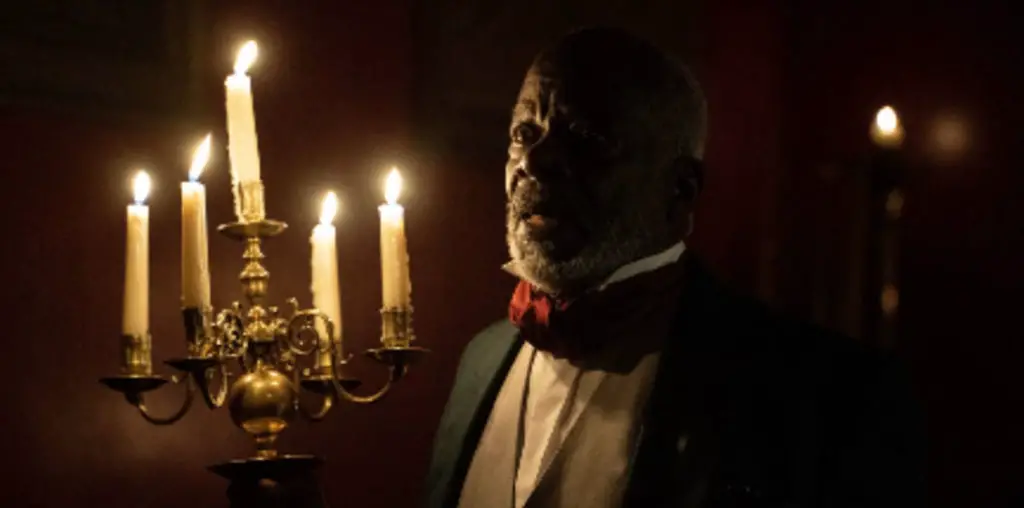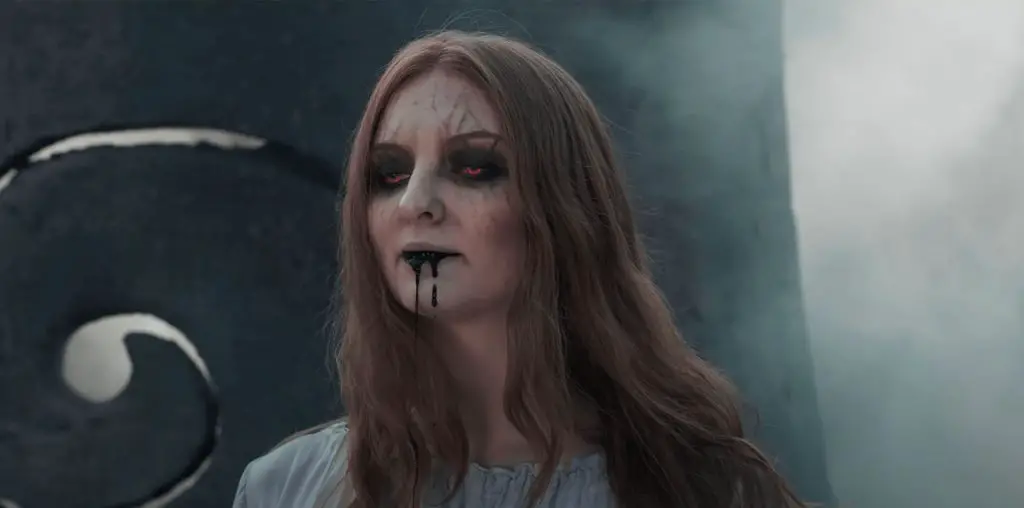
It is hard to believe that back in November 2003 a “user reviewer” on the Internet Movie Database could complain that “Romanian cinema is little known” compared to that of other Eastern European nations. Since then Romania’s “New Wave” has conquered film festivals and the art house crowd all over the world. Behind this success story we find a generation of filmmakers born between the late sixties and the mid-seventies who frequently collaborate, write and produce for each other. Their films often deal with the final years of the decaying Ceausescu regime in the 1980s (as does Christian Mungiu’s 4 Months, 3 Weeks and 2 Days, winner of the Palme d’Or at Cannes in 2007), or focus on the still on-going period of transition to market capitalism (as in Cristi Puiu’s The Death of Mr. Lazarescu of 2005). They can be broadly described as social realist, although variations range from almost minimalist simplicity to darkly burlesque farce. Florin Serban’s debut feature, the awkwardly titled If I Want to Whistle, I Whistle, belongs squarely in the former category and I’m not surprised that the director mentions the Dardenne brothers as an influence when I meet him at Stockholm’s Nordic Light Hotel on a wintery cold November morning.
Small, slim but fit, the thinning dark stubble on his almost-shaved head matching that of his beard, Serban makes me think more than anything of a lightweight boxer. Seemingly shy by nature he looks gloomy as well this morning, complaining about the winter darkness of Sweden as we shake hands. “You wake up at 7.30. It’s almost dark. At 3.30 it’s dark again.” He sinks into the sofa and I begin by asking him why he thinks that so many strong realist dramas are produced in Romania these days? He mutters that this is “a question for a film critic or, even better, a film historian” and goes quiet. But then he starts answering it anyway, and soon he gives me one explanation after another. His eyes go livelier, his somberness dissipates along with the dark clouds outside the window and the shyness gives way. He asks me if I’ve seen many Romanian films from the 1990s. I have to admit that I can’t think of a single one. He tells me that very few films traveled beyond the borders of Romania in those days.
“And there’s a good reason for that. Because they were crap. People that were making movies under the Communist regime, people that worked under censorship, saw the possibility of telling everything they hadn’t told for years. And you see, those movies, you don’t give a s**t about them because all the frustrations, all the themes they couldn’t (use before), they (used) in one movie. And the movies are unwatchable. Over-the-top fantasies. Political-erotic dramas. Everybody was talking in metaphors. They were not real people. They were not real characters. The realism of the 2000s is a reaction to the unrealism of the 1990s.”
Serban credits Cristi Puiu’s debut, Stuff and Dough (2001), with turning things around. He compares it to Marlon Brando and the breakthrough of Method Acting in the US in the fifties. Here was finally a Romanian film where people talked like real people. But by then Romanian audiences had already been scared away. Today it’s impossible to make anyone under forty-five go to a Romanian film, according to Serban. The battle now is for the younger generation and the road to success goes through the heart.
“I don’t think Romanian filmmakers invented anything (stylistically). And I don’t think we are very good craftsmen in terms of filmmaking, but I think that we are very good at telling stories with the heart. And many times this is much more important than the craft.”
Serban also points to the pervasive use of, often subtle, irony that, he believes, is not always picked-up on by foreign viewers.
“We’re a mix of Latins and Balkans, we cry at funerals and three days afterwards we forget. In Romanian newspapers there’s a huge scandal with a state secretary. In any other European country the whole government would go down. In Romania, in one week everybody forgets about it. I think Romania is a country that has to be taken with irony. And I think with this type of work we are reaching a ground that is very close to what we are.”
Perhaps irony was also necessary to cope with the sudden historical break that Serban and his colleagues experienced in their early years. After all, they have in common that they were raised and schooled for one social system only to find themselves confronted with a wholly new set of official values just as they were entering into adulthood. Serban was almost fifteen during the bloody December days of 1989 that culminated in the kangaroo trial and summary execution of the Ceasescus. He describes a time of great personal confusion.
“I really had no idea of who I am. My parents (were) middle class, or not even; my father worked in a factory and my mother was working in a supermarket. She was a cashier. They were very, very scared to talk politics at home when either me or my sister was present. So the only political reality that I knew was the official politics. I was good in school. They always promoted me to head of the young pioneers and things like that. So, imagine a kid of 14 (who) was told for the past six years that this is how it’s supposed to be and we are going on a shining path to the sun. And then all of a sudden nothing is good. (E)verything that was before was a lie.”
Serban hesitates when describing his parents, the factory worker and the cashier. “Middle class, or not even.” That’s as close as he gets to using the pretty obvious term “working class.” Like so many concepts associated with the bureaucratic dictatorships that passed themselves off as “communist,” “working class” is anathema in post-Stalinist society. Still, the films of the New Wave are in many ways following in the footsteps of some of the filmmakers most closely associated with the ideological traditions of the labour movement; the Italian neo-realists, the Dardenne brothers, Loach and Leigh (though one shouldn’t overlook Romanian predecessors like Lucian Pintilie and Dan Pita either). The problematic relationship to Western Europe is scrutinized without illusions, and the critique of the economic relations of contemporary Romania is often as harsh as that of the old regime. Today’s situation “has to be criticized,” says Serban.
“I’m not trying to solve problems. I’m just trying to break some hearts, if I can. That’s as far as I want to go. But not to criticize what you see around you would be literally impossible.”
I wonder whether some learnings from the youth and school days, lessons of classical Marxism and the social analysis of the labour movement, may not have survived both their perversion at the hands of the dictatorship and the fall of Stalinism, to influence, despite everything, Serban’s generation today? He agrees that there is probably something in that, but holds that it is impossible to suggest to people of his generation that there is anything useful at all in communism, socialism or even broadly defined Marxism. He illustrates this point with the help of a not entirely politically correct analogy.
“For people younger than my age or much older, over sixty, it’s a different topic. (But for people of my generation) it is like, you’re a gypsy, you were born a gypsy but you want to be pale, and you want to be blond, you want to have blue eyes. You do everything to look like a blond with blue eyes. So it’s like that thing of the past, that you trash no matter if it’s good or bad. No matter if there were good things… my generation totally trash socialism and communism. If there are traces of it in our work..? Of course, there are. But we don’t want to hear about it.”
If I Want to Whistle, I Whistle is a youth drama dealing with the effects of mass-emigration and its, often traumatic, impact on Romanian families. Silviu is to be released from youth prison in just a few days when his mother visits from Italy. She tells him that she plans to take his little brother back with her to her new home country. Silviu has also fallen in love with a young student, Ana, who is taking part in a sociology project at the prison. Faced with the threat of losing both his only sibling and his new love, a few days suddenly become an impossibly long time to wait to get out and Silviu commits a desperate act.
”That’s true,” Serban agrees as I point out the irony in that Romanians, who were once locked inside their country, now are more or less driven out of it by economic forces. Left in Romania are their children.
“We are dealing at this point with a whole generation of kids that are all ‘strawberry kids.’ These are the kids that the parents left behind some fifteen years ago to go and work, mostly in Italy and Spain. And in Spain the parents were picking strawberries. That’s why they are called ‘strawberry kids.’ So, they went there because they couldn’t find work in Romania and they left their kids behind. They went there with good intentions, to make some money for their families so the kids wouldn’t be poor and suffer. But it didn’t work out and the kids try to find their own path in life and they didn’t find the right one. We have a whole generation of these kids filling the prisons.”
The script, co-written by Serban with Catalin Mitulescu, was based on a play and had been around, in earlier versions, for a few years when Serban was handed it. He re-wrote it extensively after having spent two months at a real youth prison.
“The backbone of the whole movie, the relationship with the mother, was not in the play. It was not in any draft until I stayed with these kids and I met them and understood that the presence of the mother is the constant element in their stories. Or the absence of the mother…”
But Serban didn’t just bring their stories into the film, he also had some of these kids act in it. They would arrive to the set every morning in police vans, surrounded by armed guards. He describes the experience of working with them enthusiastically.
“It was literally a spiritual experience for me, because, you work with somebody from the outside world and sometimes you can make a difference in that person’s life, but you work with these people from the inside, and they are used to being treated in a certain way, and you approach them like you approach any human being in this world, with respect and a certain dignity, and they open themselves up in a way that people from the outside never do. Because they are not used to being treated in this way. That’s why I’m saying it was a very rewarding experience to work with these kids.”
Serban tells me that he is still in touch with most of them. Our time is running out, but there’s one more thing Serban wants to say.
“I have an acting school and some of them are going through this acting school. It’s mixed. Kids that went through prison or from orphanages combined with people like you and me that have jobs and want to learn acting.”
There’s no mistaking the warmth in both his voice and his eyes as he talks about these kids. And I can’t help thinking that surely he wants to do a little more than “breaking some hearts.” He would love to mend a few as well, if possible.
If I Want to Whistle, I Whistle won the Silver Bear at Berlin’s film festival and George Pistereanu (Silviu) picked up the best actor award in Stockholm a couple of days after this interview. It premieres at the Film Forum, New York on January 5, 2011. Director Florin Serban will be in attendance at the 8pm showing on January 5, with a post-screening afterparty at VYNE, 82 W. 3rd St. (between Thompson & Sullivan)



